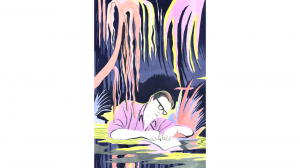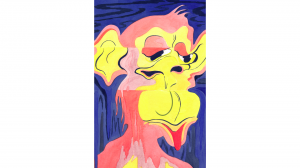Fresh from winning hearts and an ensemble SAG Award for his role in Ted Lasso, the actor is continuing to seek out roles that portray nuanced narratives. Talking to Port, the issue 30 cover star reflects on growing up navigating disparate worlds, theatrical ambitions and belonging in a changing Brixton
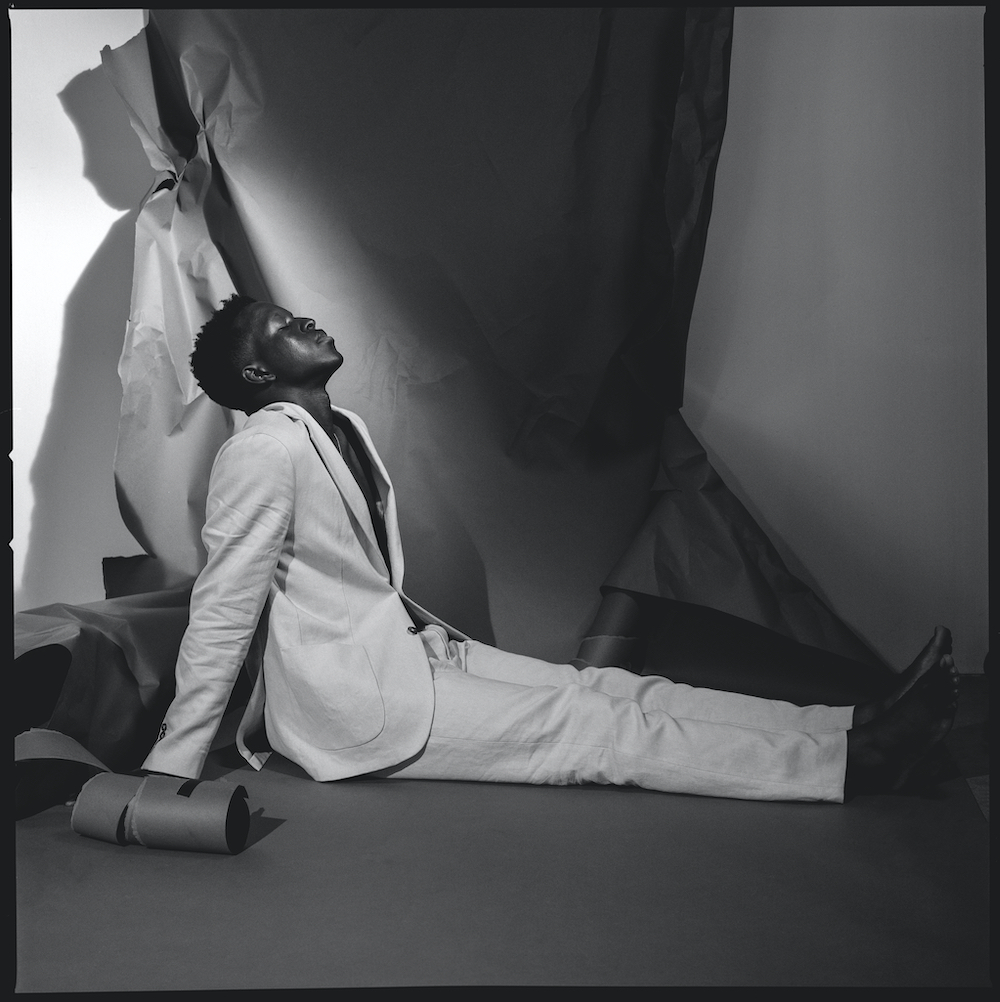
Toheeb Jimoh is trying to keep a straight face. “I’m a horrible, horrible, horrible person,” he insists. Of course, the 24-year-old is etched into the public psyche as the exact opposite. He’s mostly known as Sam Obisanya in Apple TV’s multiple-Emmy-winner, Ted Lasso, one of the warmest feel-good comedies currently on offer. His character is a fan favourite and, to his dismay, adorable. Now, as he moves through the world, those who meet him expect him to be saccharin or else he’ll spoil the illusion. Even if someone approaches him for a picture on a packed-out sweaty tube journey, when we’re all at our grumpiest, he has to mimic his on-screen elation. “Sometimes I wish I was in Succession,” he says before beaming. He may protest, but Jimoh cannot hide his warmth.
When we speak, he’s at his parent’s home in Brixton where he was born and still resides, enjoying “free food”. In this “two-up, two-down council house” he unwinds after filming projects for streaming giants like Apple and Amazon, or collecting Critic’s Choice awards and other accolades for his acting. He’s wearing a youthful white sweater dotted with green cartoon motifs, and behind him is a giant clock fashioned out of wall stickers. At times his brother pops into the room in a blue hoodie to wave and be nosy. There’s a humility to Jimoh as he chats about his career in the same way someone might talk about having a lowkey side hustle, and despite him being a rising star in the entertainment industry, at home he’s still the baby of the family.
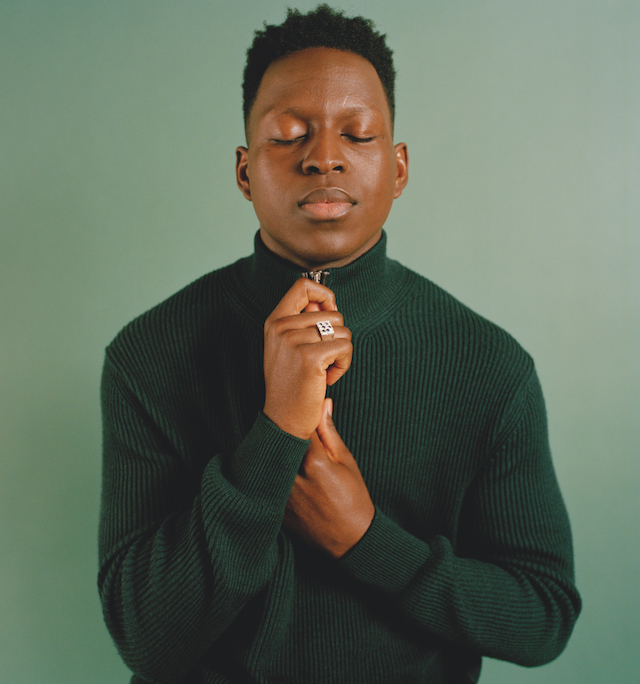
There are bridges between his on-screen roles and his home life. Starring in Ted Lasso alongside Jason Sudeikis, who plays the titular role, the actor has garnered attention for his optimistic performance as a Nigerian right-back for the fictional AFC Richmond. Sam was initially written as Ghanaian, but he requested they change the role to his own background so he could interpolate his parent’s accent, and demonstrate the experiences of a Nigerian boy living in the UK.
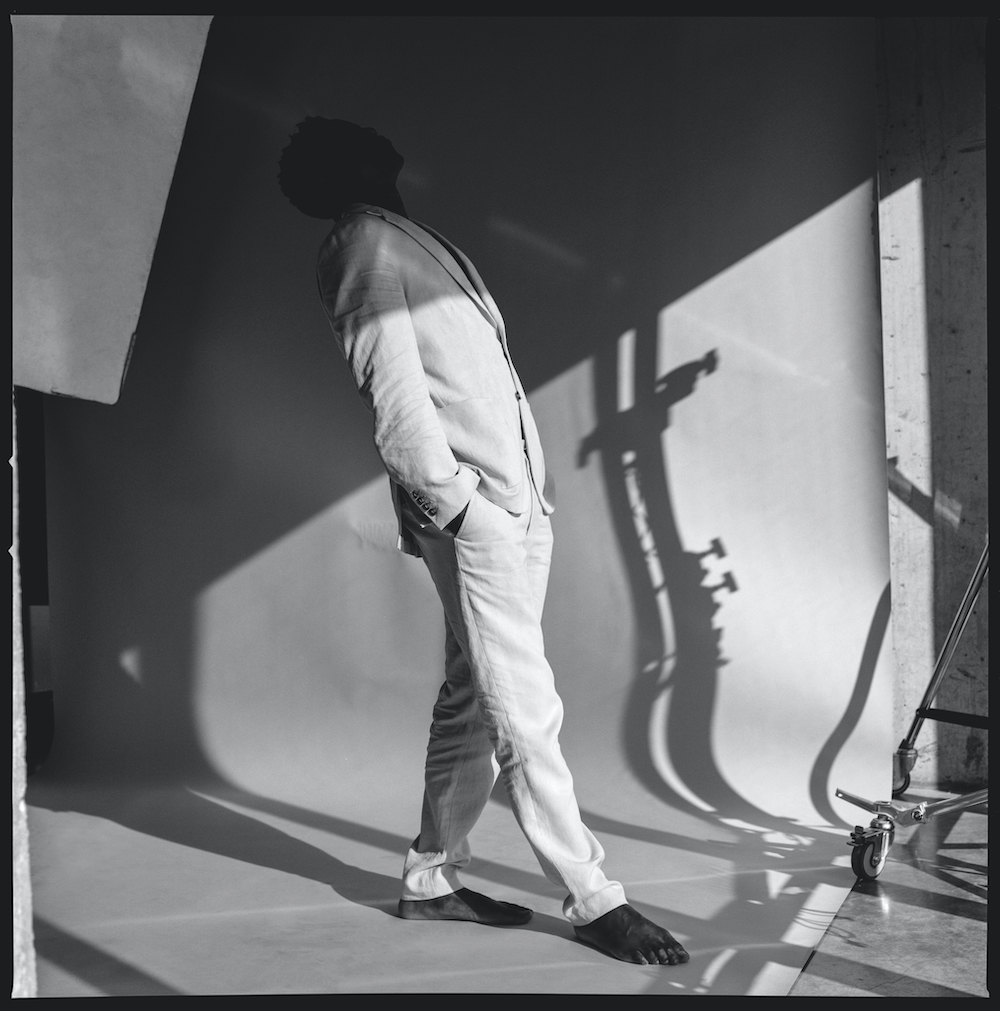
So far the newcomer has avoided oppression-oriented narratives – something that plagues Black British creatives. While Ted Lasso contains some allegories for its viewers on identity and masculinity, Jimoh is a fan because it doesn’t “bang you over the head with it”. Similarly in his breakout role in BBC One’s Anthony, even though he plays Anthony Walker – who was killed in a real-life racist attack in 2005 – the show opted to reimagine his life as if that terrible crime never happened. The scale of loss is instead inferred by seeing what it would have looked like if he had the chance to live. When playing an aspirational cadet, in Wes Anderson’s The French Dispatch, who is fixated on his and his comrade’s goals for the future, he stands in contrast to another cadet who dies by suicide moments later.
He’s palpably excited about his major new role in Amazon’s supernatural drama, The Power, where he plays a character that “just happens to be a Muslim Nigerian journalist, and that’s it”. In other words, his identity isn’t a major plot point; it’s simply a fact that adds to the rich tapestry of the character. Based on the book by Naomi Alderman, it’s a surreal exploration of what happens to society when young females become the dominant sex after developing the ability to electrocute people at will. “It’s gonna trip you the fuck out, but it’s going to be so interesting to watch,” he says. He plays a formerly confident character, Tunde, and the allegory of the show afforded him the space to explore what true strength looks like.
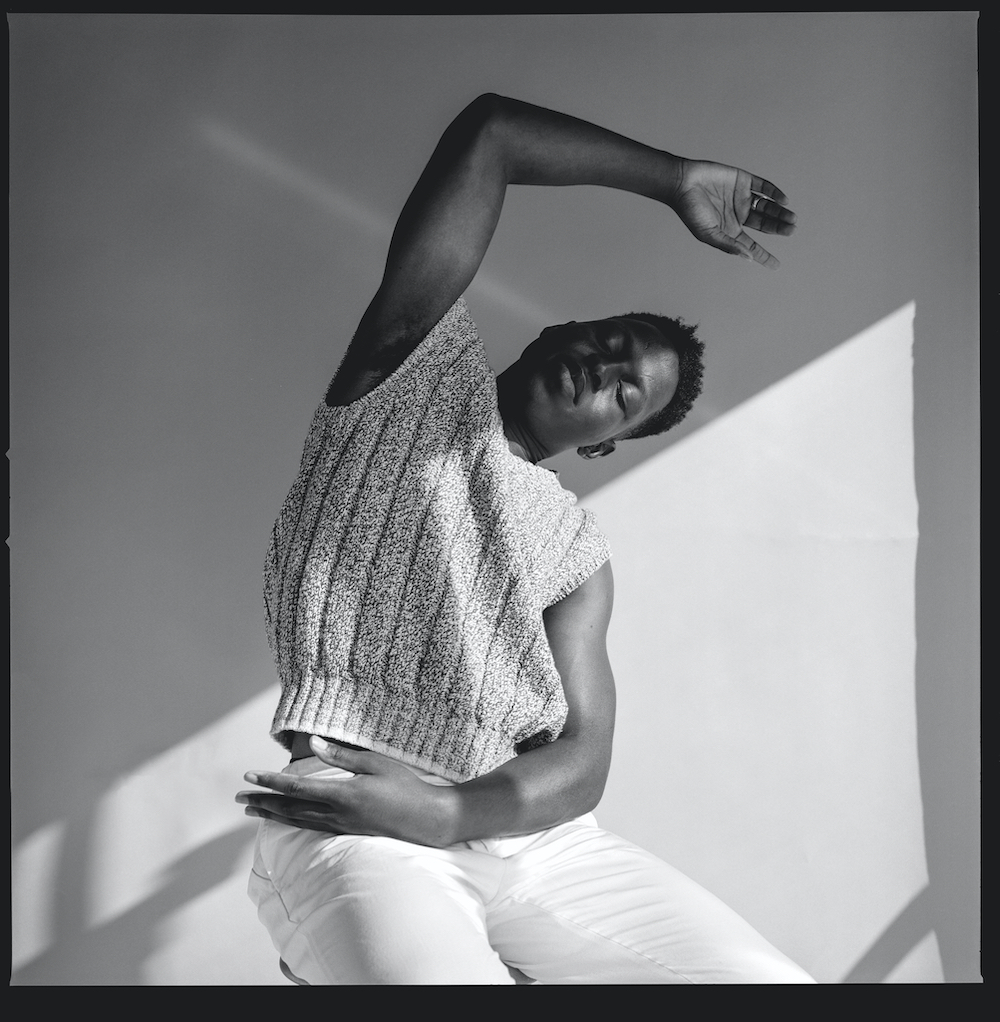
Jimoh continues: “Once he knows he could get rushed by a group of women at any moment, he changes. There’s a moment where Tunde is in a foreign country and gets on a bus at night to see there are only women riding it, and so he gets off. He genuinely is scared and has the same fear women have as they move through the world. He then sets about writing a book on the shift in the times.” The project still has an unspecified 2022 release date.
“The next stage I want us to get to [socio-politically] is being able to play Black characters without a trauma story, without it needing to be about how tough it is to be Black,” he explains. Jimoh describes this wide variety of multi-dimensional roles as fortuitous, an initial fluke which has quickly evolved into a desire to continue picking out similar work.
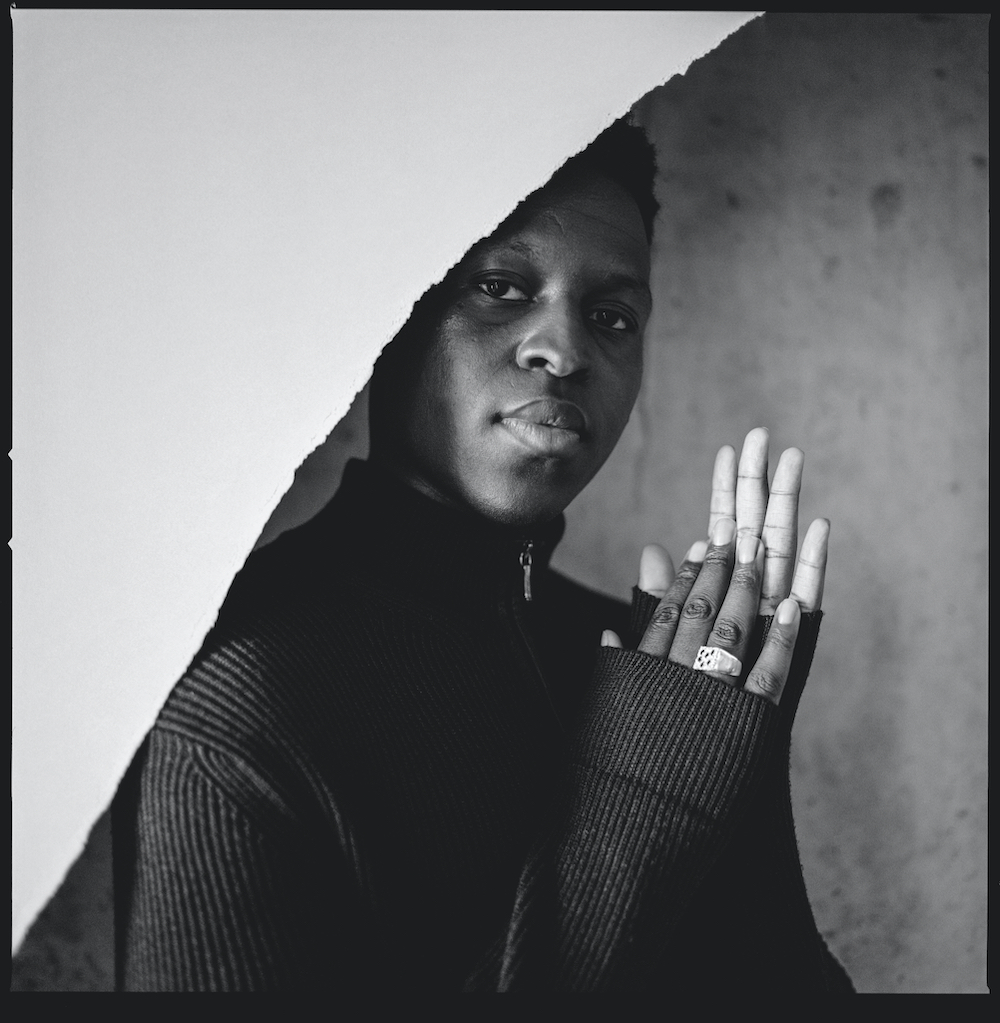
For now, he’s still choosing roles based on what he thinks his 15-year-old self would need to see. In his youth he briefly toyed with the idea of being a politician, having ascertained it was a role that wielded influence, however he realised it was entertainers who left a lasting impression on him and his friends. He’d get home from school and watch BBC Two’s dinnertime line-up of My Wife and Kids or The Fresh Prince of Bel-Air. The latter made him a huge fan of Will Smith, whose performance in The Pursuit of Happyness would move him so much he’d watch it “four or five times in a row”. Although, acting wasn’t his first choice. He reveals that he first had a “failed rap career” around the age of 16.
Somewhere in a cobwebbed corner on YouTube exist clips of Jimoh’s first foray into performance as a lyricist, before he decided to become a thespian. Even when heavily pressed, he’s cagey with the key details: his stage name, lyrics that could be googled, or a hyperlink. But he does let me know that rap was his first line of defence while trying to navigate several cultures at once. Although Jimoh was born in Brixton he moved to Nigeria as a toddler, before returning to the UK when he was seven years old. When he returned he was picked on for his accent, and for being different from other Black children. He remembers feeling “culturally African”, turning up to school with “dry knees and dry ankles”. One day he came to class in socks and sandals and his teacher took him to another class to show a colleague what he was wearing. “I didn’t know it was a faux pas,” he laughs. “No wonder I started rapping; I had angst.”
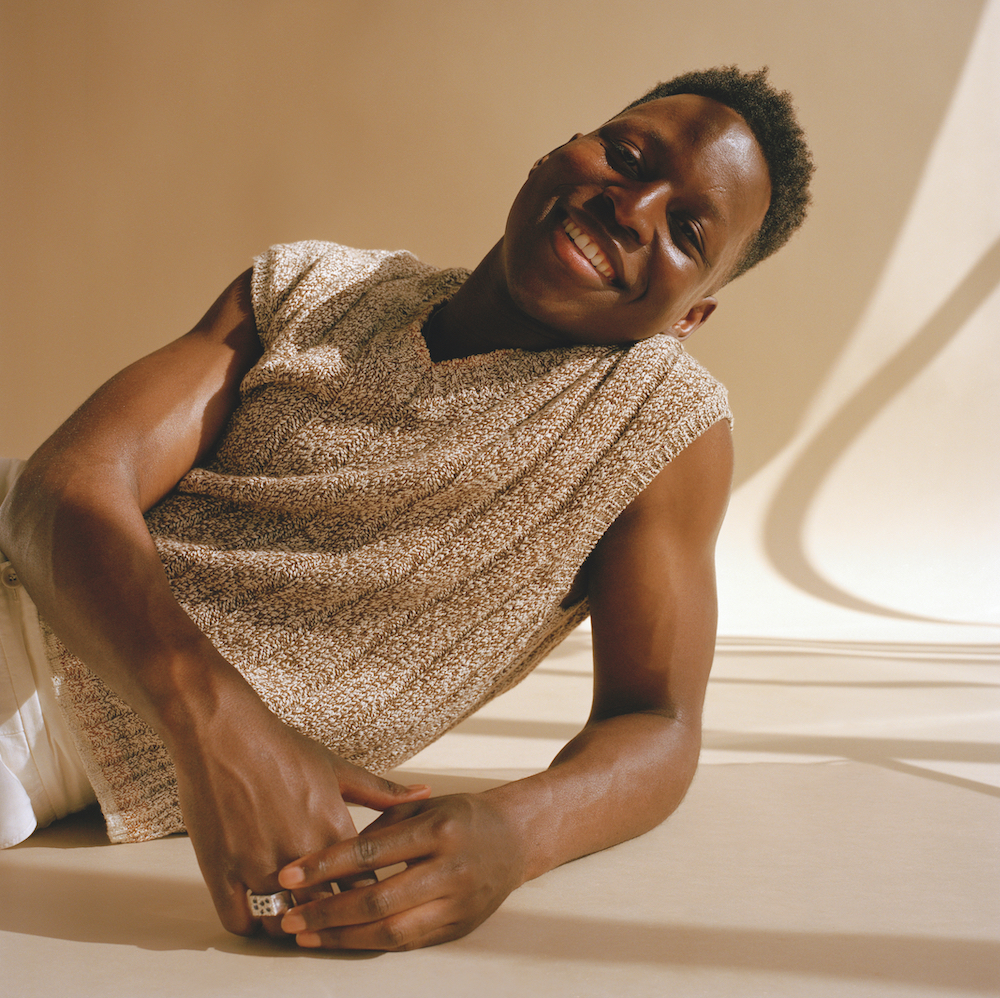
In the same way many comedians developed their knack for making people laugh as a tool for survival, his drive to entertain served to distract other children from being cruel. Performance unlocked Jimoh’s ability to code-switch. He spoke in assembly, joined the debating society and tried to shed his accent to sound more like a “Brixton kid”. During his late teens, knife and gang crimes were omnipresent, and then one of his friends took his own life. These tales became the narrative for his tracks. He claims his initial works were a similar flavour to Kendrick Lamar’s acclaimed good kid, m.A.A.d city. “I’m not gonna lie; I feel like I was the first conscious rapper in the UK,” he says, wryly.
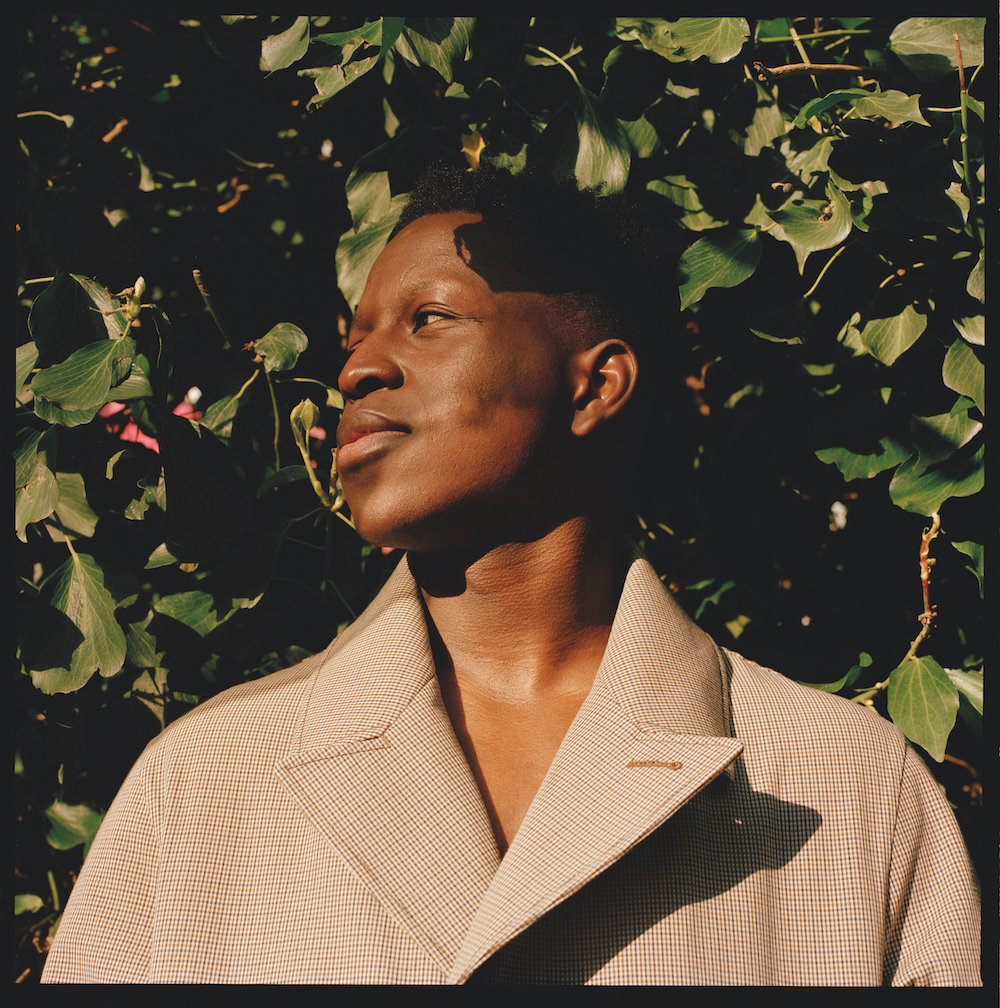
Later he attended the Guildhall School of Music and Drama, where one of his teachers introduced him to spoken word artists such as George the Poet and Inua Ellams. He’s proud of the success of the likes of Dave and Stormzy, who are carving out distinct Black and British identities in music. Soaking up all his disparate surroundings, writing verses also helps him make sense of the experience of being a third-culture kid who grew up in south London when it was under siege, and then had to find a way to fit into the prestigious world of stage coaching. Even now, Jimoh still jots down his thoughts in a tatty broken notebook, which he flicks through as we talk. He hopes to transform them into a spoken word play at the Nigerian-owned Brixton House theatre next year. “That’s the closest the world will get to me spitting bars.” He gives me an exclusive preview performance. He rattles off lines about the “demons” of Loughborough Junction, being “in the middle of knives”, and how “you don’t get counselling in council flats”. It has the grit of rap paired with touching introspection.
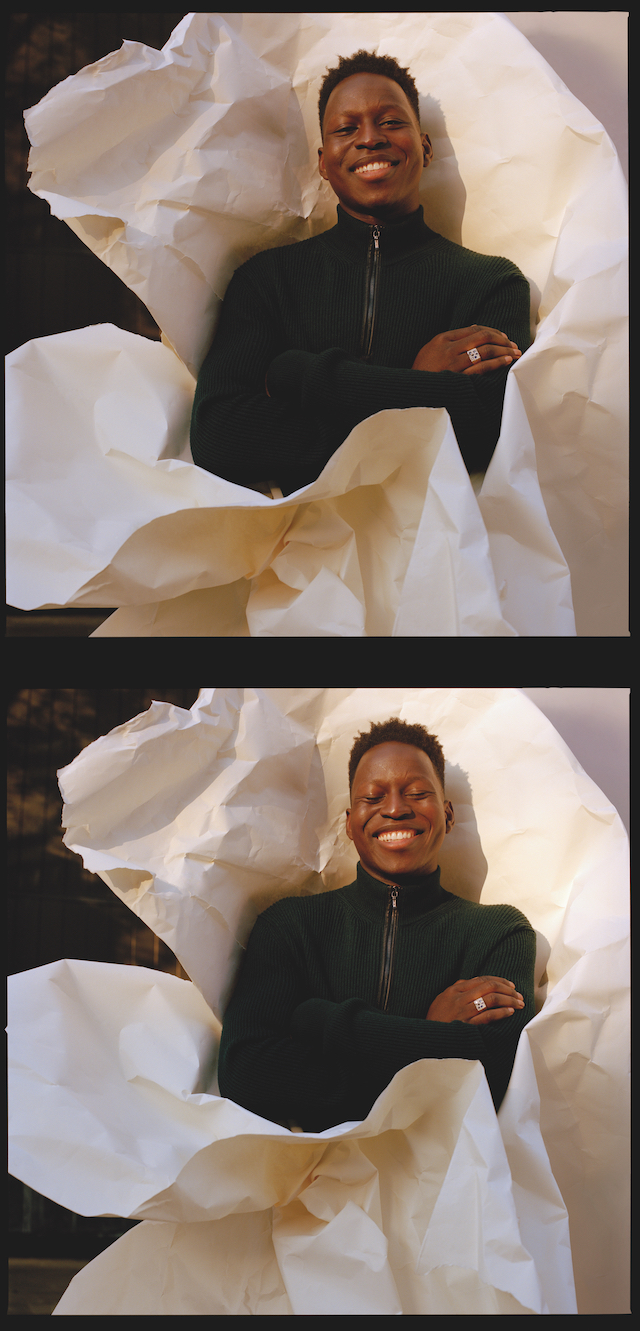
Despite its hardships, Jimoh is still incredibly proud of his area which has “its own culture”, saying that even north London “feels like a different land”. While studying he moved to Crouch End to live out his “middle class fantasies”, but after a while he admitted the area was “dry”. When he returned after two years away, he found the rapid shift in Brixton bizarre. On the one hand the streets were a lot “less crazy”, but he asks, at what cost? The man who used to fix his phone for five pounds has had to close his shop due to rising rents; the man who his mum bought peppers from has disappeared. The constantly changing façade has made him more sure that he’s going to stay in the area when he moves out on his own. He adds: “Say what you want about Brixton but it still has that soul to it; you can still walk down the road and grab a patty somewhere, vibe. It feels like home.”
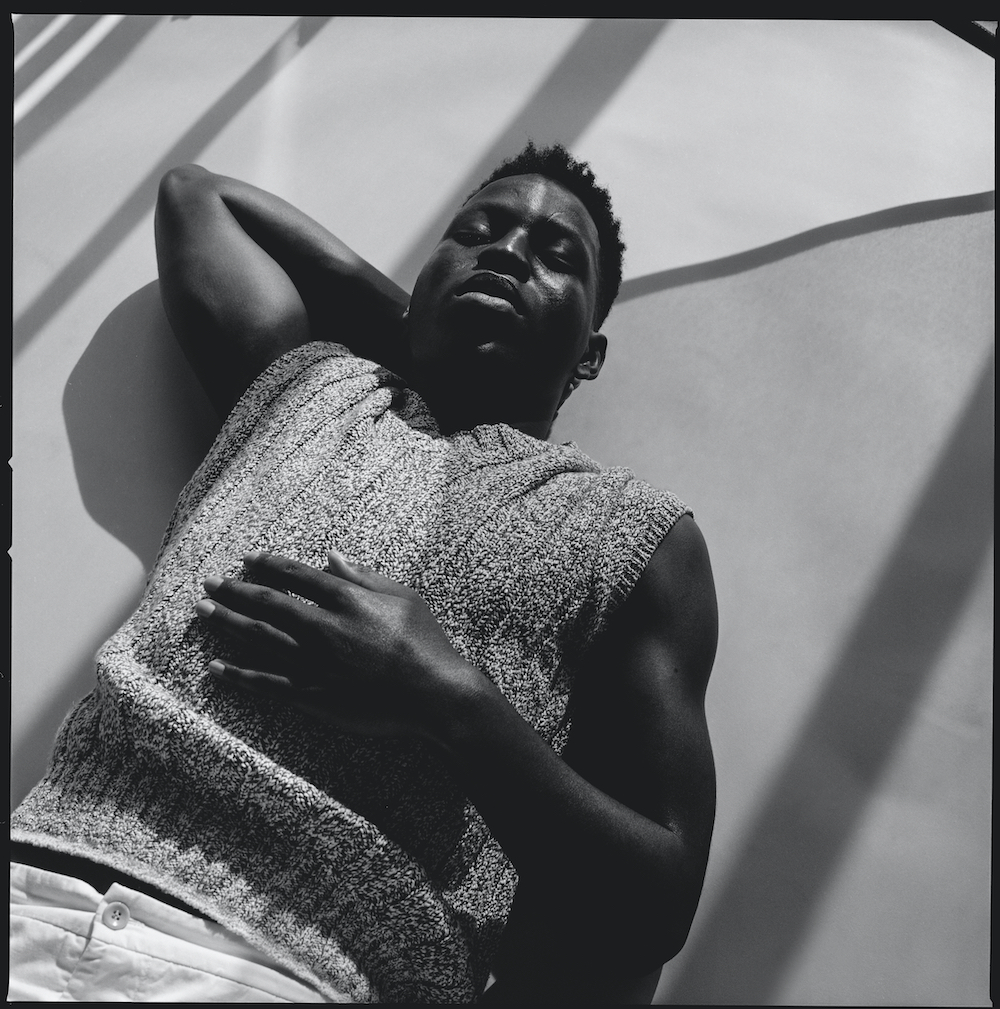
Always keen to rep his roots, it’s notable that a lot of his roles require him to perform in a Nigerian dialect. While he cannot speak Yoruba, his parent’s native tongue (which he describes as “a real primal deep hurt”), he manages to find roles that help him embrace his culture. “It’s funny that I’m getting paid to put on the same accent I was bullied for as a kid,” he says. He’s consciously weaving in narratives that show the everyday regularities of his people, like the famous scene in the Ted Lasso episode entitled ‘Biscuits’. Jimoh suggested that Sam should be gifted Chin Chin, a delicious Nigerian biscuit that “bites back” and sometimes sounds like “walking on gravel”. Jimoh has subsequently received many messages from white Americans finding places to buy the snack. “Do you know how lit that is? Some auntie in the States who has a little shop selling Nigerian food now has a customer buying Chin Chin because they watched Ted Lasso and this little Nigerian kid is on it eating it, grinning.”
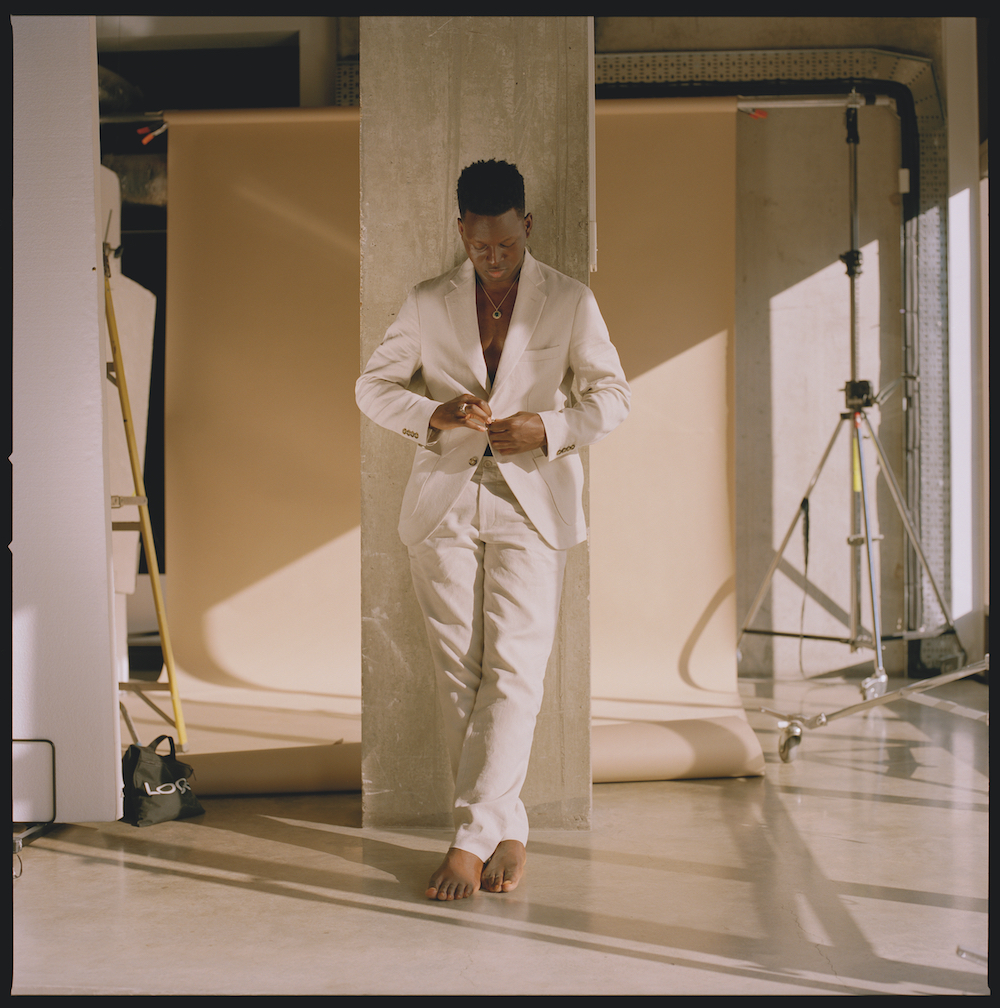
The calibre of roles Jimoh has played so far is impressive when you stop to consider he has only been acting for four years. In that time, he’s managed to carve out a niche of portraying nuanced and thoughtful Black narratives. For now, his fears of an “Ellen DeGeneres effect” – where his notoriously pleasant reputation sets the wheels in motion for a villain character arc in the event of an ill-navigated public fan encounter – appear to be unfounded. It is a joy to watch him tentatively step into his star power.
Toheeb Jimoh wears Loro Piana SS22 throughout
Photography Adama Jalloh
Styling Reuben Esser
Photography assistant Genoveva Arteaga-Rynn
Styling assistant Daniel Tyson
Grooming Francesca Daniella
Production Lock Studios
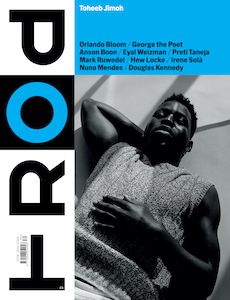
This article is taken from Port issue 30. To continue reading, buy the issue or subscribe here

